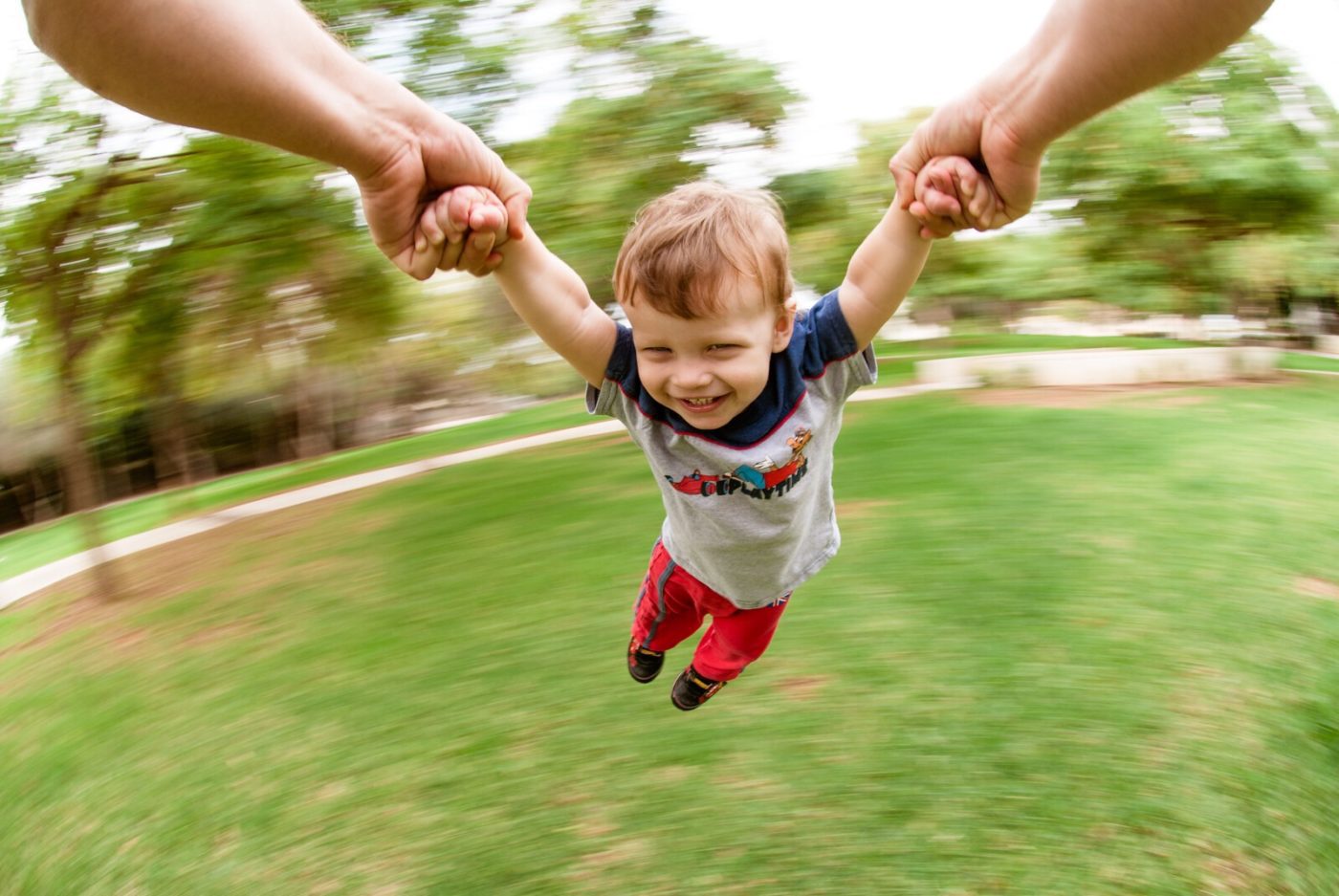“Daddy, can we sing?” My daughter begged me to get up on stage with her to sing a karaoke song. “No, Daddy doesn’t feel well,” I lied. I didn’t want to feel embarrassed trying to sing a song I barely knew with my pitchy voice. Yet, at that moment, I communicated to my daughter that it’s OK to run away from a challenge. She hasn’t asked me to sing with her since.
As parents, we quickly can pass our fears to our children without knowing it. Here are 5 common fears we pass on.
Fear of Taking Risks
By the time I was 8 years old, I had fallen out of a treehouse, shimmied up the water pipe of a maintenance building, and climbed multiple barbed wire fences. Yet, I can’t imagine ever allowing my children to do those dangerous activities. Kids are natural risk-takers, though, eager to test the world’s limits around them. A lot of kids don’t think twice about skateboarding off stairwells or getting tossed 20 feet into the air while cheerleading. No dad wants to see his child get hurt, but if we act like helicopter parents, always trying to protect them, we can pass along our fear of danger, and they may stop taking risks. But risks can bring great rewards for our children because they find out what they are capable of accomplishing.
Fear of Failure
Our children watch how we respond when our favorite sports teams lose. If we get in a bad mood, unable to let the loss go, we tell our children that failure is a bad thing. If your kids become afraid to fail, then they won’t be willing to pursue their dreams. According to Smithsonian Magazine, when Thomas Edison was asked about his failure in making the lightbulb, he famously said, “I have not failed 10,000 times—I’ve successfully found 10,000 ways that will not work.” Michael Jordan has also said he failed over and over again, which is why he was successful. Failure can be a learning tool and it can help you get better. We must celebrate failure more so our children don’t fear it but instead, learn from it.
Fear of Embarrassment
My wife and I randomly text “30 Second Dance Party” to each other. No matter where we are or what we’re doing, we have to do a small dance for 30 seconds. At first, I was so embarrassed to do this, but my daughter caught on and forced me. She started telling my wife to text me so I would be caught off guard. I began to enjoy it because my daughter was paying attention. What used to embarrass me bonded me closer to my daughter. I see how overcoming my fear of dance has helped her be brave in school auditions and singing competitions. We may be embarrassed by minor things, but we never know what may stick with our kids.
Fear of Not Being Perfect
Everything from how I prepare my kid’s lunches, brew coffee, or play a musical instrument must be perfect—I suffer from perfectionism. And I am watching my daughter suffer from it too. She is learning to play guitar but gets infuriated when she misses a note. She loses interest in playing if she can’t be perfect. Teaching her to play is like holding a mirror to my face. Perfectionism may breed excellence in the long run, but it snuffs out joy. Don’t let your perfect standards ruin your child’s enjoyment. Teach yourself to breathe, stay calm, and let things go. Your life will never be perfect, so don’t try and make theirs perfect either.
Fear of Conflict
The only way to get past conflict is to push through it. Your son is watching how you stand up for yourself in an argument with your buddies. Your daughter wonders why you won’t tell the server that your order is incorrect. It’s easy to excuse trivial problems because confronting them doesn’t seem worth it, but you’re sending your kids a message. You’re telling them to avoid conflict at all costs. And as your kids grow, they may never fight for their place and just accept whatever spot they are given. Most conflict does not lead to arguments or violence. It is mostly about being willing to speak up for yourself.
Sound off: What are some other possible fears we pass on?












Huddle up with your kids and ask, “What is something you are afraid of?”